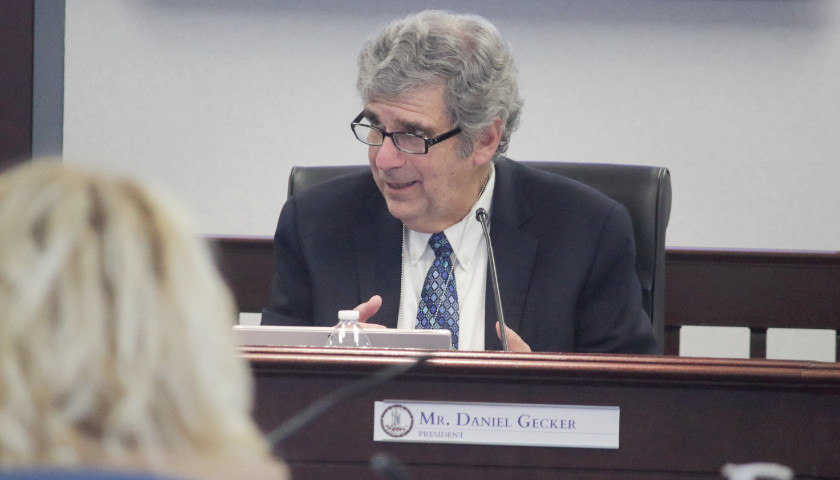by Morgan Sweeney
The Virginia Board of Education took another step in its efforts toward improving students’ literacy when it approved a new list of core instructional programs for grades K-3 on Thursday.
“I believe that the Board of Education’s vote to approve these research-based literacy programs will prove to be one of the most consequential actions of my seven years on the board,” said Board President Dan Gecker.
The programs are a direct result of the Virginia Literacy Act, a 2022 law passed with unanimous support that responds to decades of data from test scores and reading assessments showing considerable skill and comprehension gaps in students – a nationwide trend.
The law is an attempt by the commonwealth to remediate the shortcomings in its education system by implementing new guidelines and principles for literacy education based on a body of research called “the science of reading.” It will result in an overhaul of some existing literacy teacher prep programs, as well as statewide training for teachers already in the field in methods previously unfamiliar or unpracticed on a large scale.
“It’s encouraging to know that in Virginia, we have begun to prioritize reading with comprehensive policy change,” said Kristin Kane, founding member of parent-led nonprofit Decoding Dyslexia Virginia. “The hope is that every public school student, in every corner of the state, will be taught with a curriculum that is high quality, evidence-based and truly accessible.”
Per the act, the Virginia Department of Education is to develop a list of instructional programs for grades K-8 based on science of reading research and findings. Schools districts will have some flexibility in that, though they must implement board-approved programs by the 2024-25 school year, they can in some cases choose which programs they believe will work best for their students.
The Education Department is also to assist schools in their adoption of the new curriculum with tools, resources, technical assistance and funding. Training starts this summer with reading specialists and will extend to teachers and principals next summer in 2024.
Funding for the undertaking has also been appropriated in the law. The state is prepared to spend nearly $37 million on new literacy curriculum in 2023 alone.
In a movement that began in Mississippi and is sweeping the nation, 13 states in 2021 created or added to “comprehensive” science-of-reading legislation. Virginia last year became one of a total of 31 states, in addition to the District of Columbia, that have adopted similar legislation since 2013.
According to the New York Times, Mississippi fourth graders ranked 49th in the nation in 2013 for reading proficiency and by 2019, had risen to 29th in the nation.
From 1998-2013, reading proficiency among Virginia’s fourth graders as measured by the National Assessment of Educational Progress was on the rise – with approximately 43 percent of fourth graders scoring at or above proficient in 2013. Since 2015, it has declined by about 15 points on what is known as the Nation’s Report Card.
From 1998 to 2019, Virginia’s scores were typically between four and eight points higher than the national average. In 2022, for the first time since 1998, the commonwealth’s average dropped below the national norm, with only approximately 32 percent of fourth graders scoring at or above proficient in reading.
– – –
Morgan Sweeny is a staff reporter at The Center Square.








